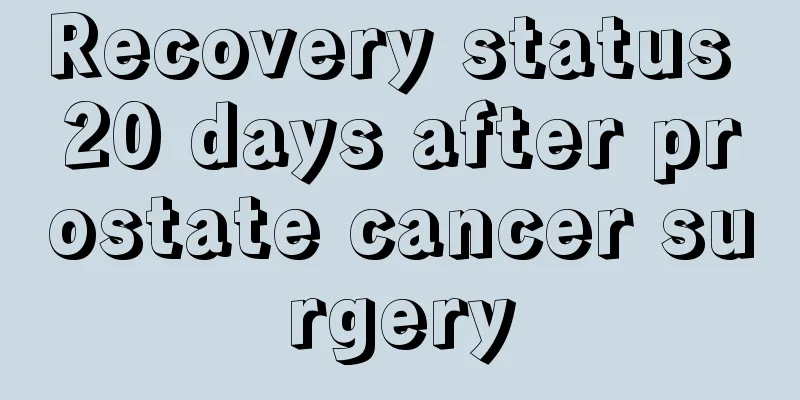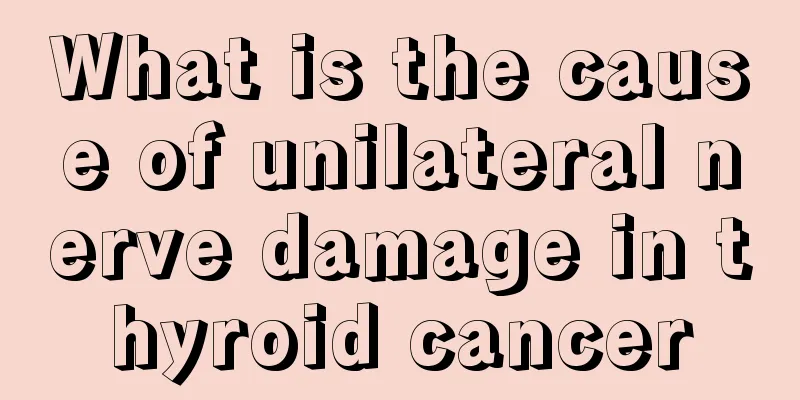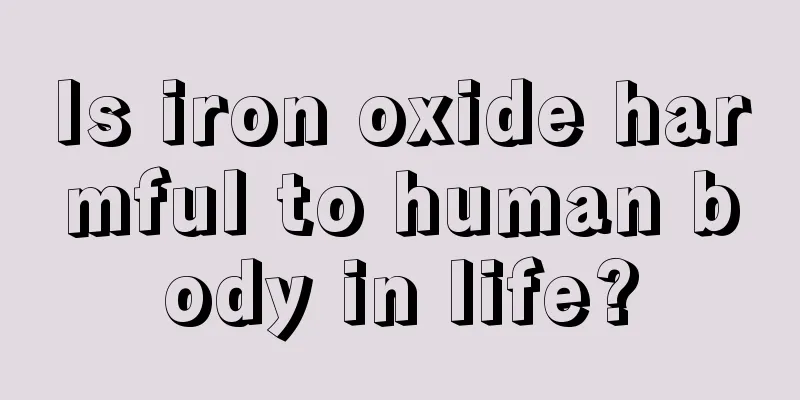Recovery status 20 days after prostate cancer surgery

|
Prostate cancer is an epithelial malignant tumor that occurs in the prostate gland. After prostate cancer is diagnosed, prostate cancer removal surgery, also known as radical prostatectomy, is required. The recovery 20 days after radical prostatectomy varies from person to person, but usually wound healing, pain relief, recovery of urination function, recovery of intestinal function, and recovery of physical strength can be observed. The details are as follows: 1. Wound healing: 20 days after radical prostatectomy, the surgical wound of most patients has basically healed. However, the specific healing situation may vary depending on the surgical method and individual differences. 2. Pain relief: As time goes by, the pain after surgery will gradually decrease. Most patients will experience significant pain relief about 20 days after surgery. 3. Recovery of urination function: Radical prostatectomy may have a certain impact on the patient's urination function. The patient's urination function usually recovers gradually 20 days after surgery, but it may take some time to adapt. Some patients may experience urination difficulties due to urethral stenosis or bladder neck edema, but this is usually temporary and can be improved through medication or urethral dilation. 4. Recovery of intestinal function: Radical prostatectomy may have a certain impact on intestinal function, such as postoperative constipation or diarrhea. 20 days after surgery, the intestinal function of most patients has gradually recovered. If there are still intestinal function problems, it is recommended to communicate with the doctor and adjust the diet and lifestyle. 5. Physical recovery: After surgery, the patient's physical strength may be affected to a certain extent. 20 days after surgery, most patients' physical strength has gradually recovered and they can gradually engage in light physical activities. However, the specific amount and intensity of activity should be determined based on the patient's physical condition and the doctor's advice. Radical prostatectomy may have a certain impact on the patient's psychological state, such as anxiety and depression. 20 days after the operation, as the body gradually recovers, the patient's psychological state will gradually improve. It is recommended that patients keep in touch with family and friends and seek psychological support. The diet during the postoperative recovery period should be light and easy to digest, and the nutritional intake should be gradually increased. You can eat more foods rich in protein, vitamins and minerals, such as lean meat, fish, eggs, fresh vegetables and fruits, and avoid spicy, greasy and irritating foods, as well as high-fat and high-cholesterol foods. Follow the doctor's instructions for rehabilitation treatment and follow-up, and have regular physical examinations to monitor changes in the condition and treatment effects. |
<<: There are three pains in the early stage of gastric cancer
>>: Three symptoms indicate colon cancer
Recommend
How can I make my lips thinner?
With the development of society, people's aes...
What are the sequelae of skin cancer?
According to a survey by my country's health ...
How to lose weight with excess stomach fat
You can see some people on the road with big bell...
The most effective way to remove forehead wrinkles
Because of weather changes and staying up late, p...
At the age of 85, is the pulmonary edema lung cancer?
For an 85-year-old man, the presence of pulmonary...
The difference between pomelo and grapefruit
For those who like to eat grapefruit, most of the...
Recurrence rate of rectal cancer stoma
Rectal cancer is a type of malignant tumor of the...
What to do if you accidentally swallow an apricot kernel
I believe many of my friends have encountered the...
What should I do if the clothes are too long?
Clothes are something people wear every day becau...
Can toothpaste be used to wash hair?
You cannot use toothpaste to wash your hair, main...
How to wash your face correctly with sulfur soap
Sulfur soap is a soap with high medicinal value, ...
Can ginger treat hereditary hair loss?
Some people say that hereditary hair loss cannot ...
What exercises can help enlarge breasts while lying in bed?
If breast enhancement is done right, it is actual...
Sinus tachycardia in adolescence, this is a good way to prevent it
The occurrence of sinus tachycardia during adoles...
What symptoms can prostate cancer cause?
Prostate cancer is the most common malignant tumo...









